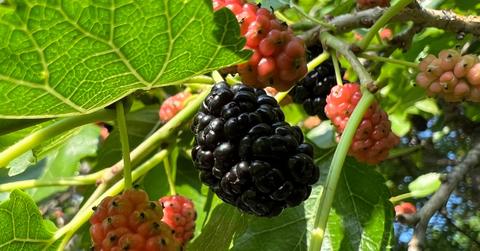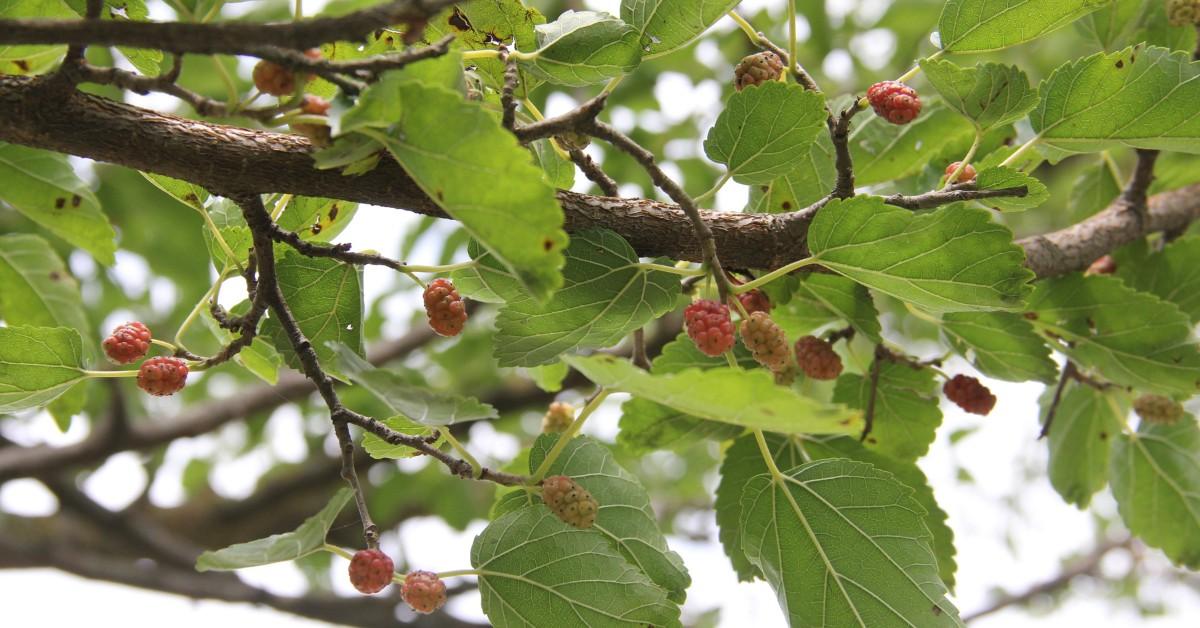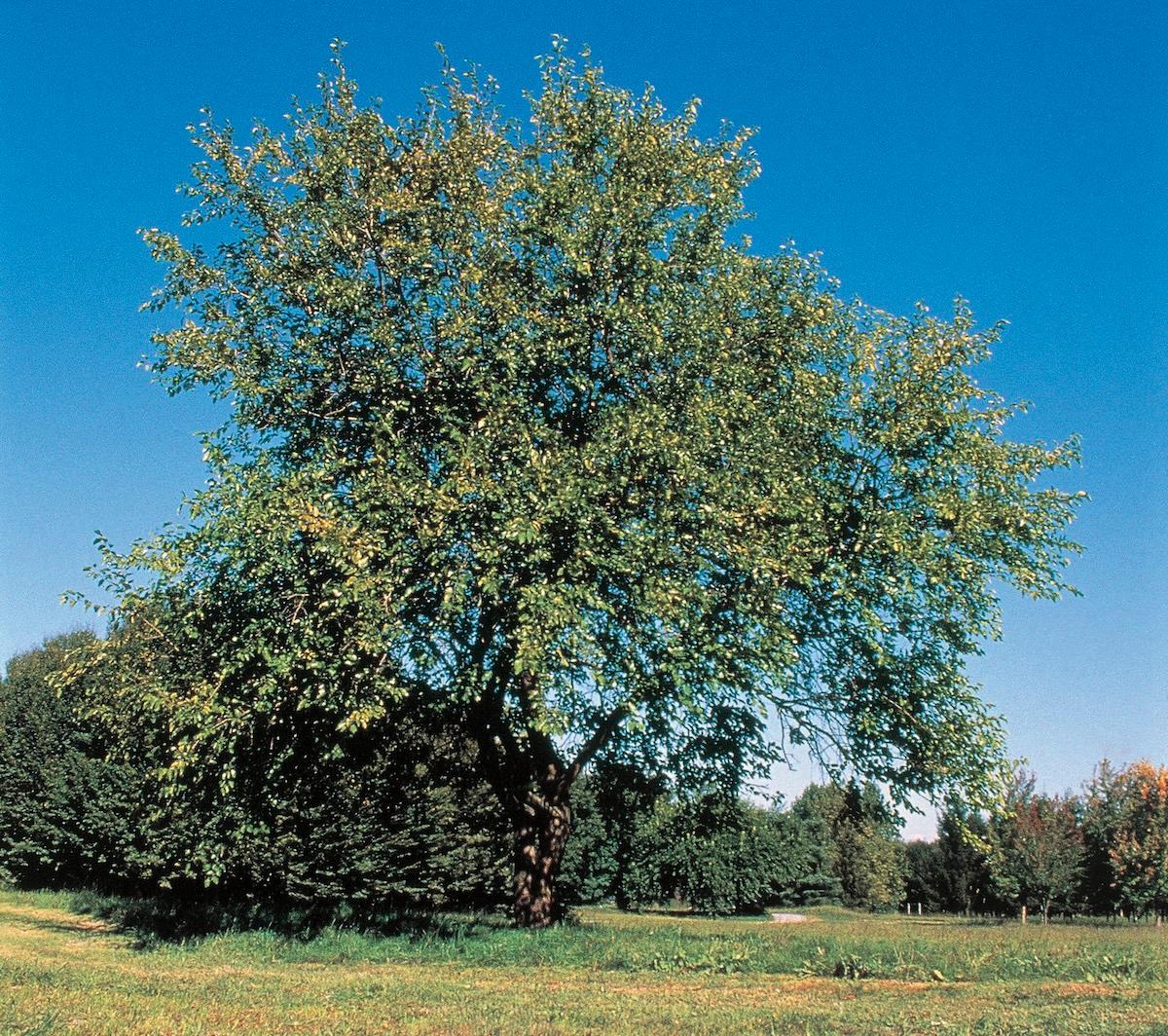Why Planting Mulberry Trees Is Against the Law In These Cities
The birds may love them, but officials in many areas want to see mulberry trees banned for good.
Published June 4 2024, 2:50 p.m. ET

You'd think something that could bring us mulberry wine, mulberry pie, and mulberry jam would be beloved by everyone who encounters it, but the mulberry tree doesn't benefit from any such popularity. In fact, the large deciduous tree is actually banned in many parts of the country, and once you learn the reasoning you might understand why so many people are just saying "no" when it comes to the mulberry tree.
Keep reading to learn why mulberry trees are illegal in certain parts of the country, and what alternatives you can get if you're looking for a fruit bearing plant that both you and the birds will love.

Where are mulberry trees illegal?
Depending on where you live, planting mulberries may be against the law. For example, the Food Forest Nursery blog notes that the trees are banned in these specific places:
- Albuquerque, New Mexico
- El Paso, Texas
- Las Vegas, Nevada
- Tucson, Arizona.
That means both residents and commercial landowners are prohibited from introducing new mulberries without town limits.
Why are mulberry trees illegal in these desert cities?
There are actually a few reasons why certain regions banned mulberry trees, and they include the challenges presented by all the berries the mulberry trees drop, which stain buildings, sidewalks, and everything else they come into contact with in the process.
But the mulberry tree has more than those aesthetic issues going against it, in fact, even fruitless varieties have been banned in Las Vegas since the early 1990s for another reason altogether — the pollen produced by mulberry trees can also cause severe allergic reactions for some people.
Additionally, the mulberry is a prolific spreader thanks to all those berries that either drop to the ground or get eaten and spread by birds, which allows for mulberry tree saplings to pop up in large numbers. This expansive growth can crowd out other local natives, harming those creatures that require the plants to survive and wreaking havoc on the local ecosystem.
In fact, the risk to local flora and fauna is so high that the Food Forest Nursery blog notes that environmental impact surveys are often required in areas where people want to plant these trees.

Are mulberry trees edible?
While that makes it sound like the tree provides nothing but figurative and literal headaches, there are plenty of benefits to the mulberry tree, including those delicious berries I mentioned before. Mulberries are actually quite good for you, and they're rich in vitamin C, K1, E, iron, and potassium, according to Healthline. However, it's worth noting that the fruits are only safe to eat once they're ripe, so you should never eat them before they turn black.
Humans are far from the only ones getting to enjoy those sweet berries. According to the Wildtree blog, birds like cedar waxwings, blue jays, and robins all flock (pun intended) to the fruit bearing tree. Additionally, homesteaders may want to add some of these massive mulberries to their properties as well, since the berries are also great for chickens and pigs, too.
That being said, if you live in one of the areas where planting a mulberry tree is illegal, you may want to look into alternatives like raspberries or blackberries, both of which provide a tasty treat when they're in bloom, and support local wildlife without breaking any laws.